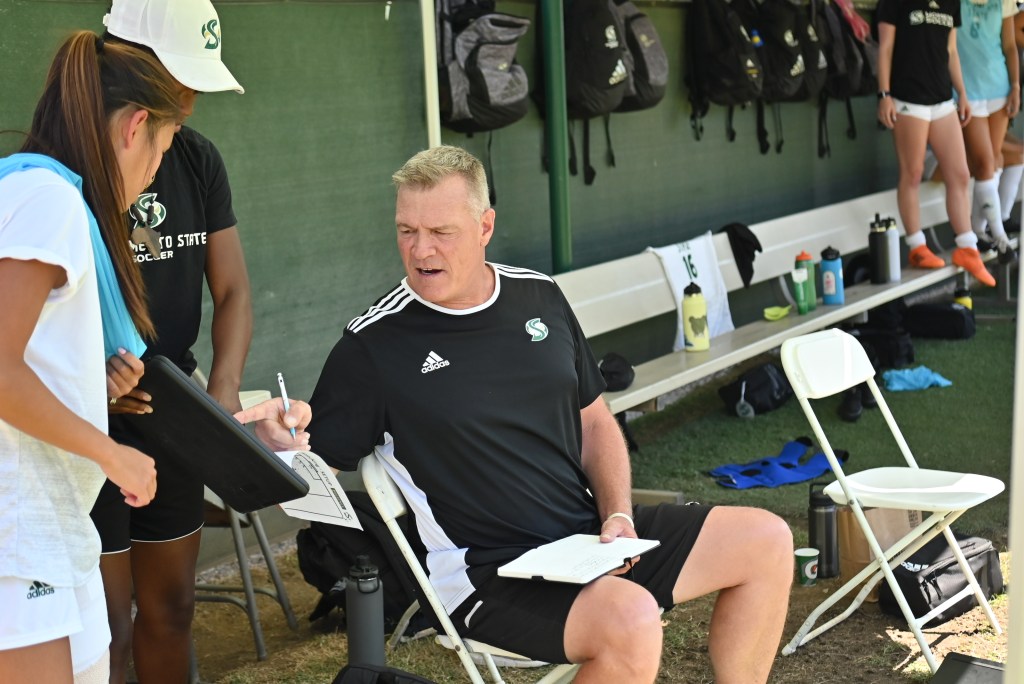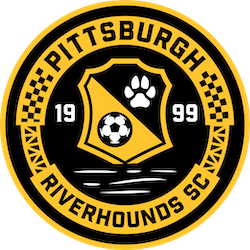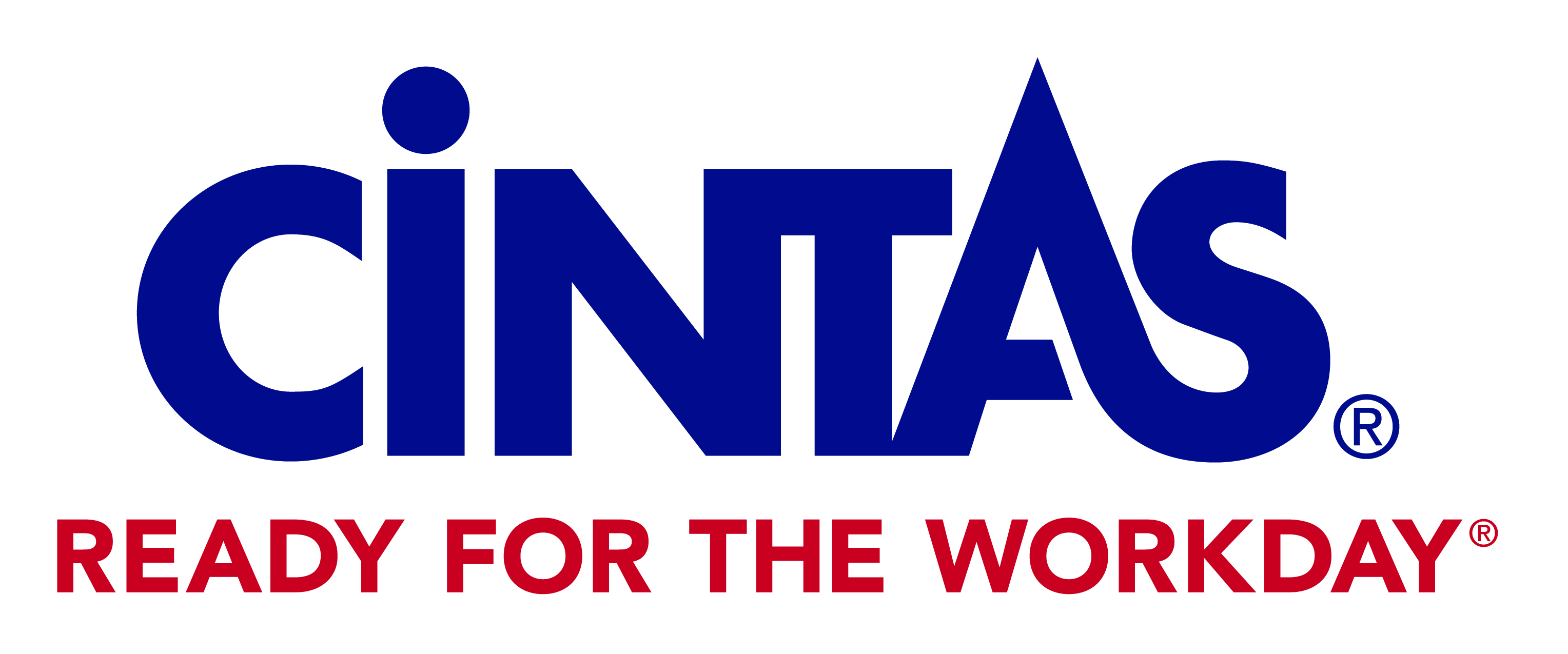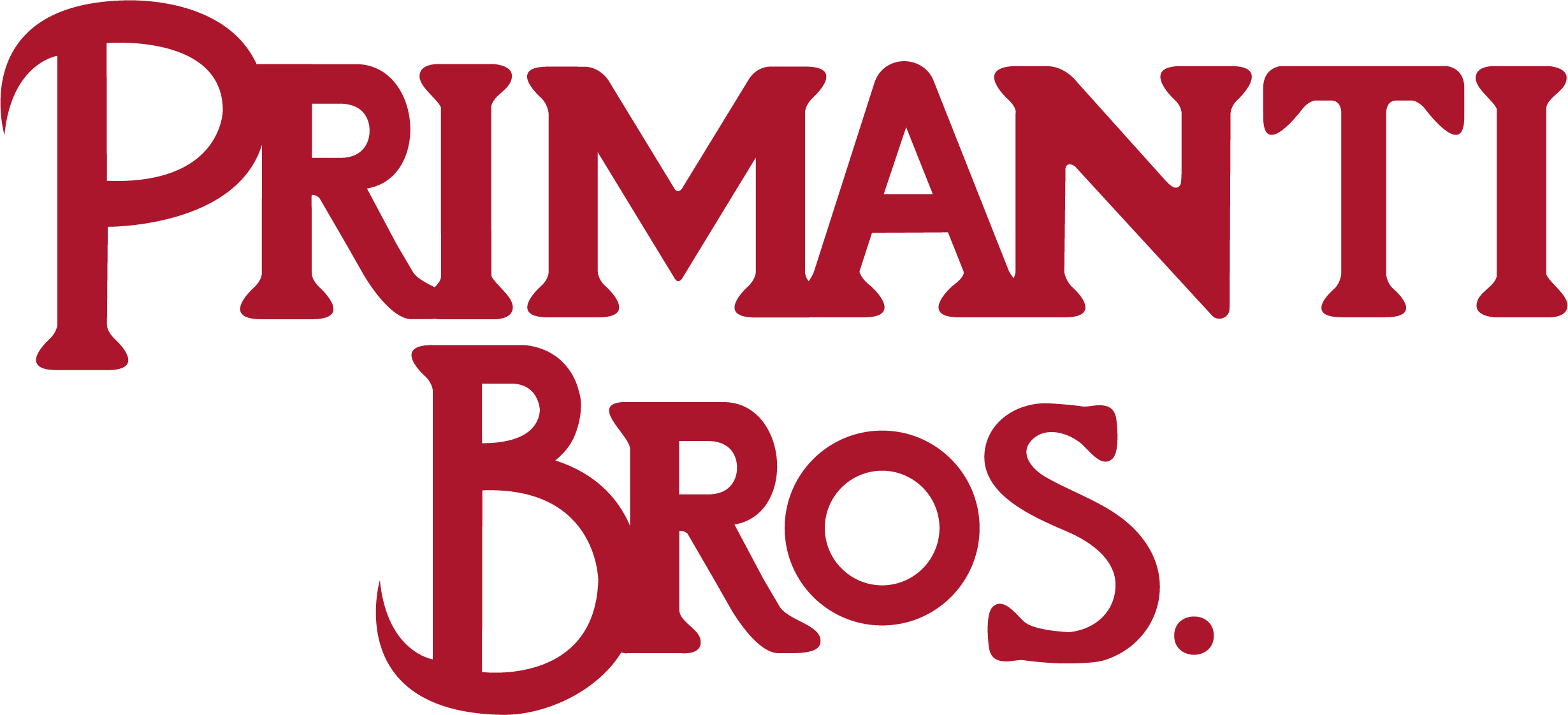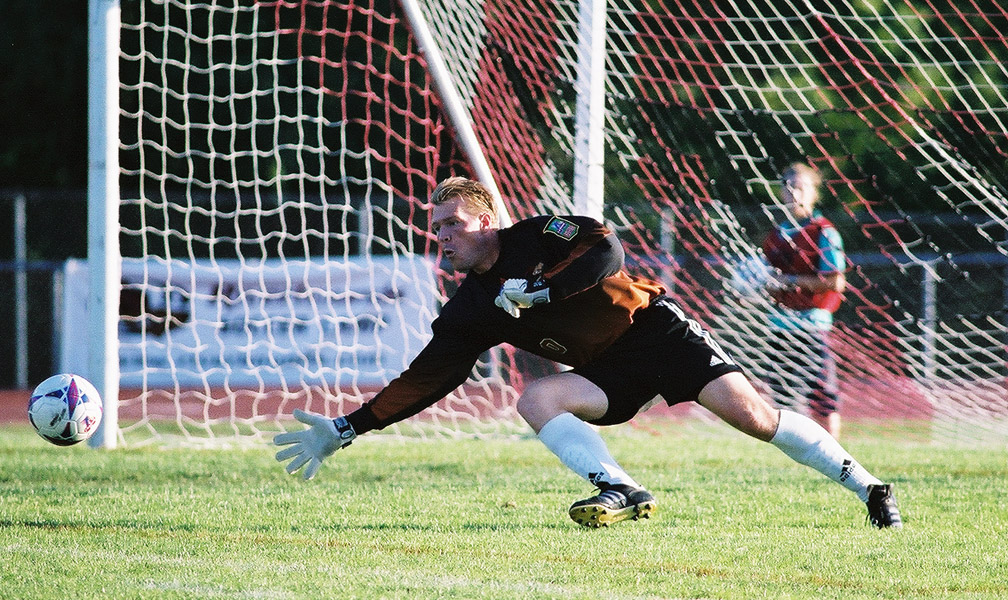
The inaugural 1999 Riverhounds team was comprised of a lot of promising young players mixed with a dash of overseas talent. But there to balance it all out was an experienced veteran leading from the back.
Randy Dedini was the starting goalkeeper for the Hounds’ first five seasons, providing leadership and on-field performance as the club took off. Many of the records he established in those early years stand 25 years later, and this year, he takes his place in the Riverhounds SC Hall of Fame’s Class of 2024.
Dedini, a native of Vacaville, Calif., spent his youth and early career in his home state. A Division II Second Team All-American at Sonoma State in his senior season of 1993, Dedini started his professional path with the North Bay Breakers and Chico Rooks of the old USISL.
In 1997, the first year of the rebranded A-League, Dedini came East to play two seasons for the Nashville Metros, establishing himself as a first-choice goalkeeper in the second division and even getting the first of a handful of loan spells in MLS with the Los Angeles Galaxy. But with an uncertain future for his Nashville club, Dedini found himself on the market entering 1999.
“We were doing some really good things in Nashville. We were really building something the two years I was there, but then they were going through some changes. They dropped out of the A-League for a while, and so I was looking for a new team,” Dedini said.
“My coach at the time let me know about Pittsburgh, that there was a new team coming, so I said I’m interested to find out more. About a day or two later, (Hounds head coach) John Kowalski gave me a call and was talking about the Hounds… everything sounded good — the organization, the ownership, the excitement around the team.”
Dedini was 29 years old when he arrived in Pittsburgh, making him one of the most experienced players on the team Kowalski initially assembled. Today, he enjoys looking back on the friendships and camaraderie of those early teams, but in those first days, Dedini took it upon himself to make sure his young teammates knew they were there for business first.
“A turning point for us that first year, we went to Cincinnati, who was also having their first year ever. I remember going down 2-0 in the first half and just being so upset, because we were a young team, and we didn’t realize that we were pretty good, too,” Dedini said.
“I just remember going into halftime of that game, I was so upset, I just started going off on our team about how we’re way better than this. We don’t realize it yet, but we’re way better than this, and we’ve got to pick this (stuff) up. I was going off at the top of my lungs, and I remember John and Paul (Child) stepping into the locker room, and I remember John turned and stepped out, so I felt I had to keep going.
“John, I think, saw I was giving the team a little… a little love, so he wanted me to continue giving them love, and I think it was a turning point. We went out in that second half and balled out, and it was almost like, ‘Yeah, we are good.’”
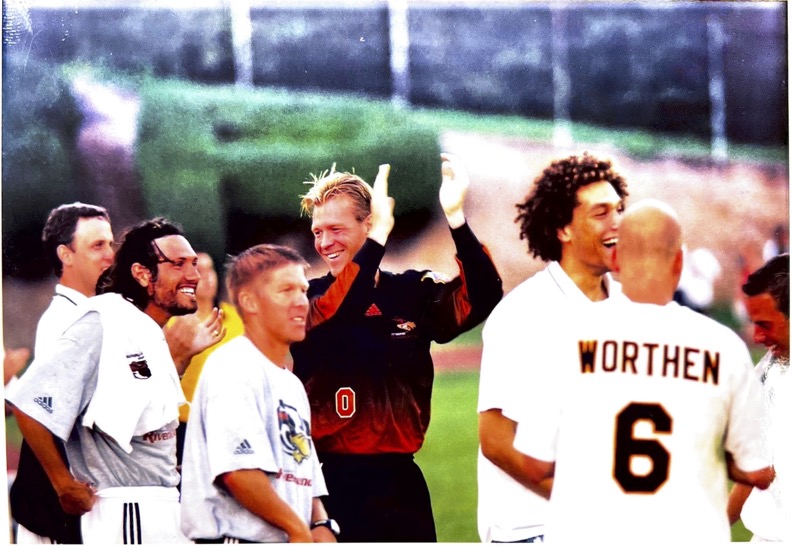
Though that particular game still ended in a 4-3 defeat, the Hounds hit their stride shortly after, rattling off a four-match win streak in June that began a run of 11 wins in 14 matches that propelled them to the playoffs in their inaugural season.
Dedini was mostly a fixture in the Hounds’ net, though he did miss matches sporadically while on loan again with MLS clubs. But it was against one of the clubs he spent time with that the Hounds scored one of his biggest victories, shutting out the Colorado Rapids, 2-0, in the 2001 U.S. Open Cup. He would also start the quarterfinal two rounds later, when the Hounds were eliminated 3-2 by the Chicago Fire on an extra-time golden goal.
His reliability in net was a big part of the Hounds advancing in the playoffs in two of their first three seasons, in addition to the 2001 Open Cup run. Dedini’s final season with the team saw the Hounds miss the playoffs by two points despite a 15-9-4 record, being beaten out by Montreal and Rochester in a highly competitive Northeast Division.
But for Dedini, wins and losses are secondary when thinking of Pittsburgh. His fonder memories are linked to the club’s family atmosphere and the connections he made with his teammates and the city.
“It’s that coming together as friends, that wanting to be together for each other, on and off the field, that’s what’s special to me,” Dedini said. “I just fell in love with Pittsburgh, and the team, and how it was operated by the Heasley family, Coach John and Coach Geno (late Hounds coach Gene Klein). I was super-close with him, and him not being able to be there when I come down is going to be sad, because he was a great mentor for me.”
Dedini was visibly moved when talking about Klein, who died last year, and it was Klein who helped Dedini lay the groundwork for the next step in his career. The Hounds’ then-goalkeepers coach brought in Dedini — still an active player — as an assistant coach at Quaker Valley High School, where Klein was the longtime head coach.
With that experience under his belt, Dedini was able to transition quickly when he decided to hang up his gloves after the 2003 season. He returned home to Northern California with a job on the staff at Sacramento State in 2004, and three years later, he became the team’s head coach. He has held that position now for 17 years, three times earning Big Sky Conference Coach of the Year leading the Hornets.
It will be the first time Dedini has returned to Pittsburgh since his playing days when he arrives for this year’s Hall of Fame induction. But all those years later, he still remains the club leader in shutouts (29) and wins by a goalkeeper (57), and his 136 saves in the 1999 season are still the Hounds’ single-season record.
“I’ve never really been much for awards. To me, I was always just get the win, I don’t care about the rest of it,” he said. “But this one feels pretty special, because of how close I was to the guys on that team and kind of the family we built there. So when Justin (Evans) called me and told me (about the induction), it was just such a huge honor to be recognized for what I was able to do there.”
